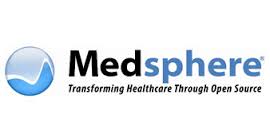American Samoa
See the following -
American Samoa Medical Center Authority Selects OpenVista as Public Health EHR
American territory will use VistA-based solution to meet Meaningful Use and support broad public health services for residents Read More »
- Login to post comments
OpenVista Live in American Samoa’s LBJ Tropical Medical Center and Department of Health Clinics
 Medsphere Systems Corporation, the leading provider of affordable and interoperable healthcare IT platform solutions, today announced that the company’s OpenVista® electronic health record (EHR) is live throughout the American Samoa healthcare system. Specifically, OpenVista is up and running in the LBJ Tropical Medical Center and 13 outpatient clinics run by the American Samoa Medical Center Authority (ASMCA), as well as four of the eight clinics in the American Samoa Department of Health (DOH). The EHR will be rolled out to two additional DOH clinics later this year and two more in the near future.
Medsphere Systems Corporation, the leading provider of affordable and interoperable healthcare IT platform solutions, today announced that the company’s OpenVista® electronic health record (EHR) is live throughout the American Samoa healthcare system. Specifically, OpenVista is up and running in the LBJ Tropical Medical Center and 13 outpatient clinics run by the American Samoa Medical Center Authority (ASMCA), as well as four of the eight clinics in the American Samoa Department of Health (DOH). The EHR will be rolled out to two additional DOH clinics later this year and two more in the near future.
- Login to post comments
South Africa’s Areta Health Selects Medsphere Healthcare IT Solutions
 Medsphere Systems Corporation, the leading provider of affordable and interoperable healthcare information technology (IT) solutions and services, today announced that the company has reached an agreement with South Africa’s Areta Health for comprehensive support of the organization’s hospital network. The contract covers Areta Health’s Specialist Day Hospital (SDH) system spread throughout South Africa. The hospitals, in turn, anchor an integrated health network with remote clinics and in-home monitoring that allow patients to heal at home without sacrificing attentive care...
Medsphere Systems Corporation, the leading provider of affordable and interoperable healthcare information technology (IT) solutions and services, today announced that the company has reached an agreement with South Africa’s Areta Health for comprehensive support of the organization’s hospital network. The contract covers Areta Health’s Specialist Day Hospital (SDH) system spread throughout South Africa. The hospitals, in turn, anchor an integrated health network with remote clinics and in-home monitoring that allow patients to heal at home without sacrificing attentive care...
- Login to post comments
Using the Latest Advances in Data Science to Fight Infectious Diseases
 One of the most dramatic shifts in recent years that is empowering epidemiologists to be more effective at their jobs is occurring due to improvements in data technologies. In the past, the old "relational" data model dictated that data had to be highly structured, and as a result treated in distinct silos. This made it difficult, if not impossible, to analyze data from multiple sources to find correlations. Epidemiologists would spend many minutes or even hours on each query they ran to get results back, which is unacceptable when you need to test dozens of hypotheses to try to understand and contain a fast-moving outbreak. (Imagine how you would feel if each one of your Google searches took 45 minutes to return!) By contrast, using newer technologies, the same queries on the same hardware can run in seconds. Read More »
One of the most dramatic shifts in recent years that is empowering epidemiologists to be more effective at their jobs is occurring due to improvements in data technologies. In the past, the old "relational" data model dictated that data had to be highly structured, and as a result treated in distinct silos. This made it difficult, if not impossible, to analyze data from multiple sources to find correlations. Epidemiologists would spend many minutes or even hours on each query they ran to get results back, which is unacceptable when you need to test dozens of hypotheses to try to understand and contain a fast-moving outbreak. (Imagine how you would feel if each one of your Google searches took 45 minutes to return!) By contrast, using newer technologies, the same queries on the same hardware can run in seconds. Read More »
- Login to post comments